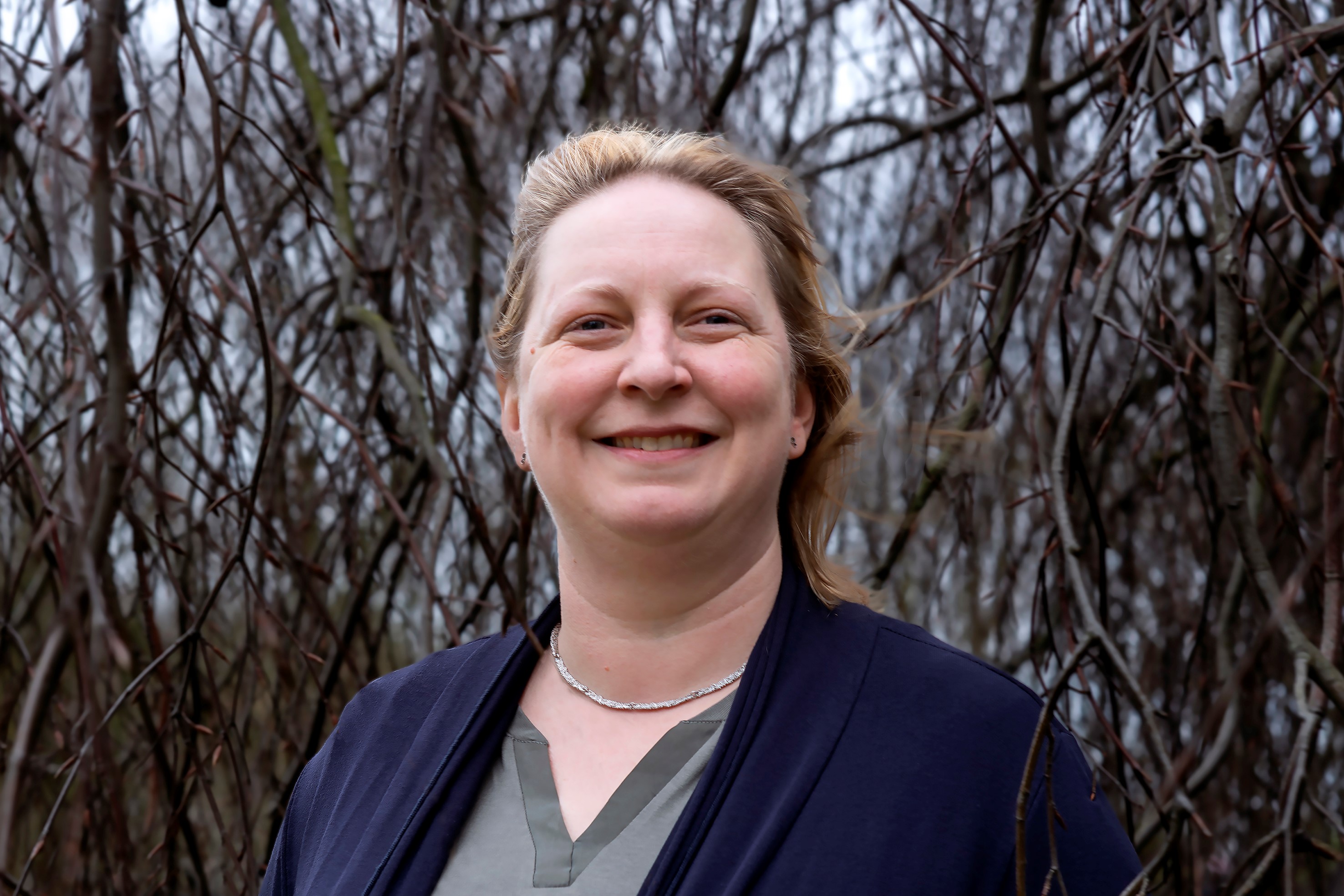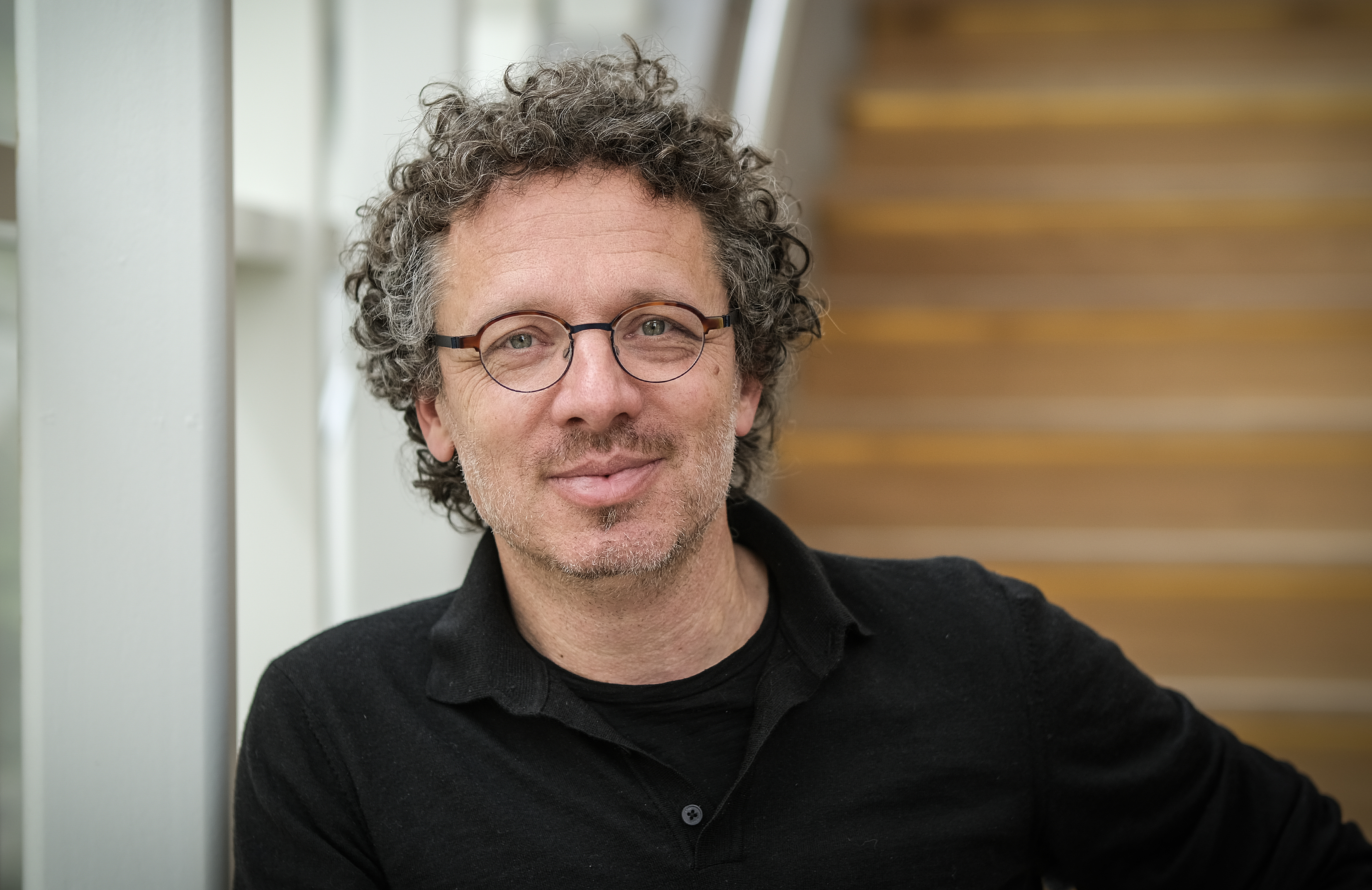Kicks, punches and throws
UM alumni Brian and Rob Timmermans combined their degrees in Econometrics and Sustainable Finance with their passion for karate, resulting in an ever-expanding trophy collection. Both brothers are multi-time and reigning Dutch champions in their respective weight classes and have achieved success on the international stage. “Doing karate is like solving a complex maths problem.”
“Remind me not to pick a fight with you.” This was the typical response from fellow students upon learning that the Timmermans brothers practise karate. “Usually followed by, ‘Oh, so you break pieces of wood in two,’” adds Brian. Sometimes they tried to explain that they specialise in sport karate, a variant that involves one-on-one combat where points are scored through kicks, punches and throws. “But most of them didn’t really get it,” Rob says. “It’s hard to explain to people who’ve never seen a match.”
The brothers attended Maastricht University around the same time. Rob studied Fiscal Economics, followed by a master’s in Sustainable Finance; Brian completed master’s degrees in Econometrics and Financial Economics. They chose UM because it was close to home and they felt drawn to Problem-Based Learning. They weren’t typical students, Brian says. “Besides going to class and sitting exams, our world revolved around karate. We trained 15 hours a week and even started our own karate school. The combination was demanding, but with our lecturers’ support, we always found a way to make it work.”
Cognitive skills
They didn’t yet know where their degrees would take them. “Career prospects were at the back of my mind, but the main thing was that I love working with numbers,” Brian says. He became a statistician at Statistics Netherlands, Rob a pension administrator at the pension fund ABP. Both jobs are relatively flexible, allowing them to balance their profession with their passion. Sometimes they even manage to squeeze in some work during tournaments. “After the preliminaries of the World Karate Championships in Budapest, I went back to my hotel room and processed survivor pensions,” Rob says.
The brothers started karate at a young age. Brian was first; Rob and their youngest brother Jordy followed in his footsteps a year later. “I was competitive. I started winning matches early on and realised I had talent. They say participation is more important than winning, but if you always lose as a child, you’re unlikely to find it fun,” Brian says. The beauty of sport karate lies in its combination of agility, technique and, perhaps surprisingly, cognitive skills. “You’re constantly making tactical decisions. If your strategy fails, you have to be able to quickly switch to one that works.”
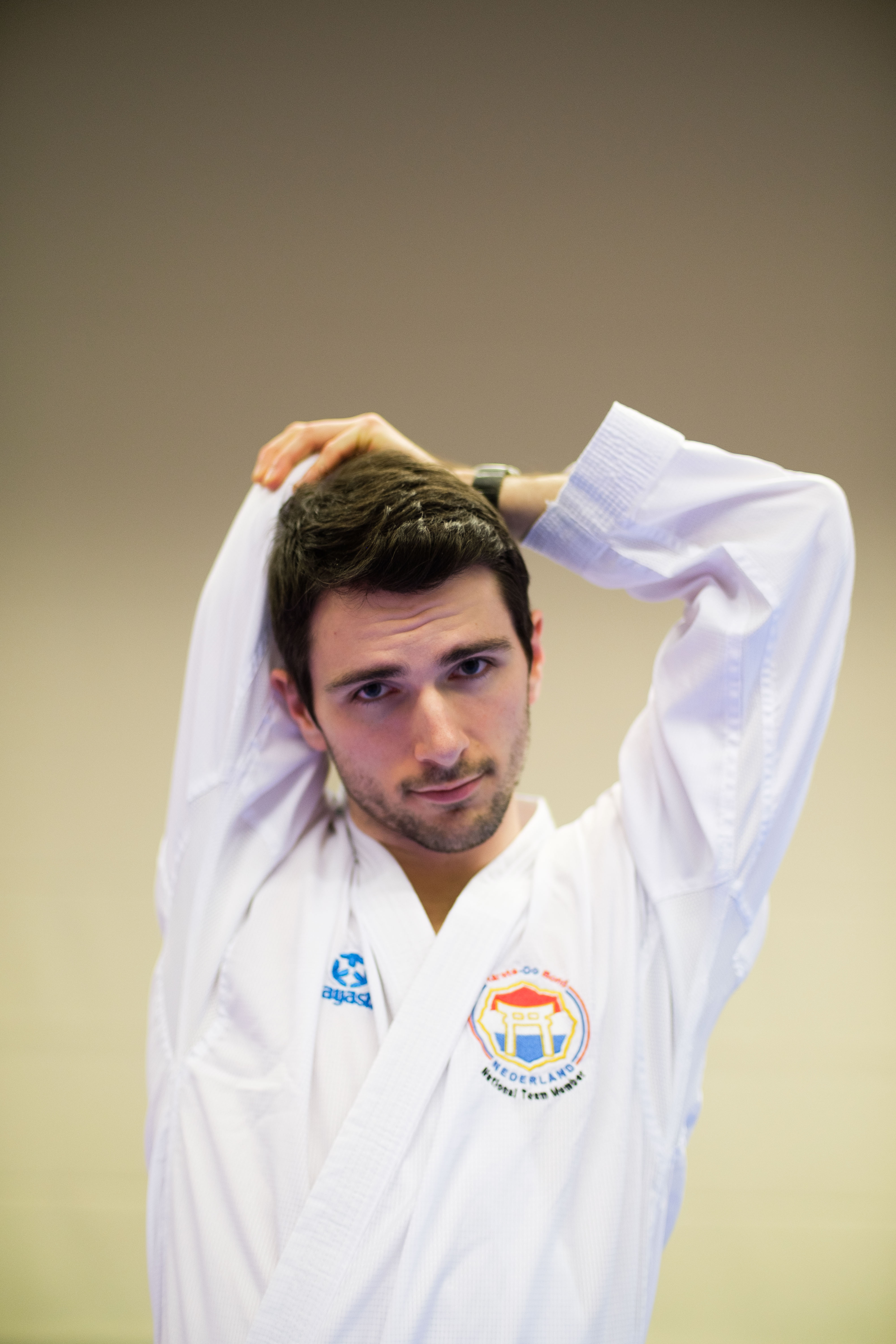
Rob Timmermans studied Fiscal Economics and Sustainable Finance at Maastricht University and works as a survivor pension administrator at ABP. A multi-time and reigning Dutch sport karate champion (84+ kg), he runs Karate Team Timmermans in Heerlen with his two brothers.
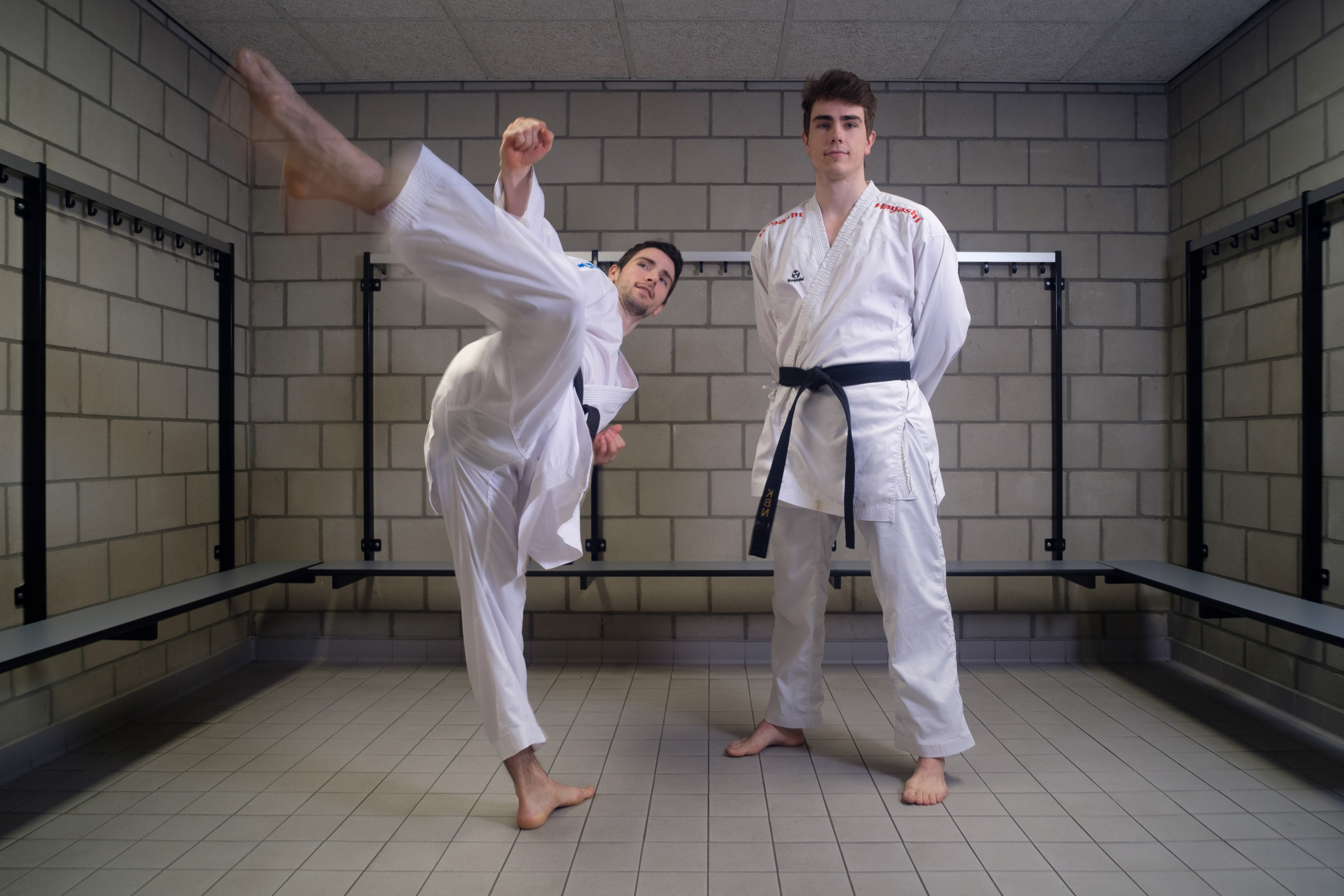
Respect
To this end, their studies proved useful. “Whether at work or during a karate match, it’s all about adapting, not getting stuck in a situation and making the right choices,” Rob explains. “You’re constantly analysing situations and figuring out the steps needed to improve. It’s like solving a complex maths problem. You might not get it instantly; you have to figure out how the pieces fit together. That’s something we learnt in our studies and still use in karate.”
Their own karate school draws in a lot of children. “They learn to respect one another and their instructors,” Brian says. “They always start by greeting each other. Since they’re not allowed to make contact, they learn to control their bodies and any aggression that might arise. Any physical aspect you can think of, sport karate has it.” Rob takes the opportunity to address parents: “Sign your kids up for sport karate lessons—at Karate Team Timmermans in Heerlen, of course!”
Confidence
Their karate practice also benefits them in everyday life. “It gives you confidence in your ability to defend yourself in certain situations,” Rob explains. “That being said, we rarely let a situation escalate. We’re more likely to try to calm a person down if they’re being aggressive. Merely exuding confidence solves most problems. And if a person can’t stay calm, it’s best to just walk away. Fighting leads nowhere. Fortunately, we’ve never found ourselves in a situation that got out of hand.”
World stage
It’s clear that their winning mindset has paid off—both brothers are multi-time and reigning Dutch champions in their respective weight classes. What about on the world stage? Brian: “We both compete at the highest international level in our weight classes. Rob placed third in the Pan-American Championships; I came third in the European Championships. We’re just missing that gold medal for the collection. We can beat any opponent, but the trick is to do it at the European or World Championships.”
Their most cherished memory took place in April 2022, at the Karate Premier League in Portugal. “It was a major tournament, comparable to football’s Champions League,’ Rob says. “We both reached the finals in our respective weight classes on the same day. It never happens that two brothers manage to achieve this simultaneously at a tournament with some of the world’s best sport karateka. It was a unique moment for both of us.”
Text: Hans van Vinkeveen
Photography: Moos Peters
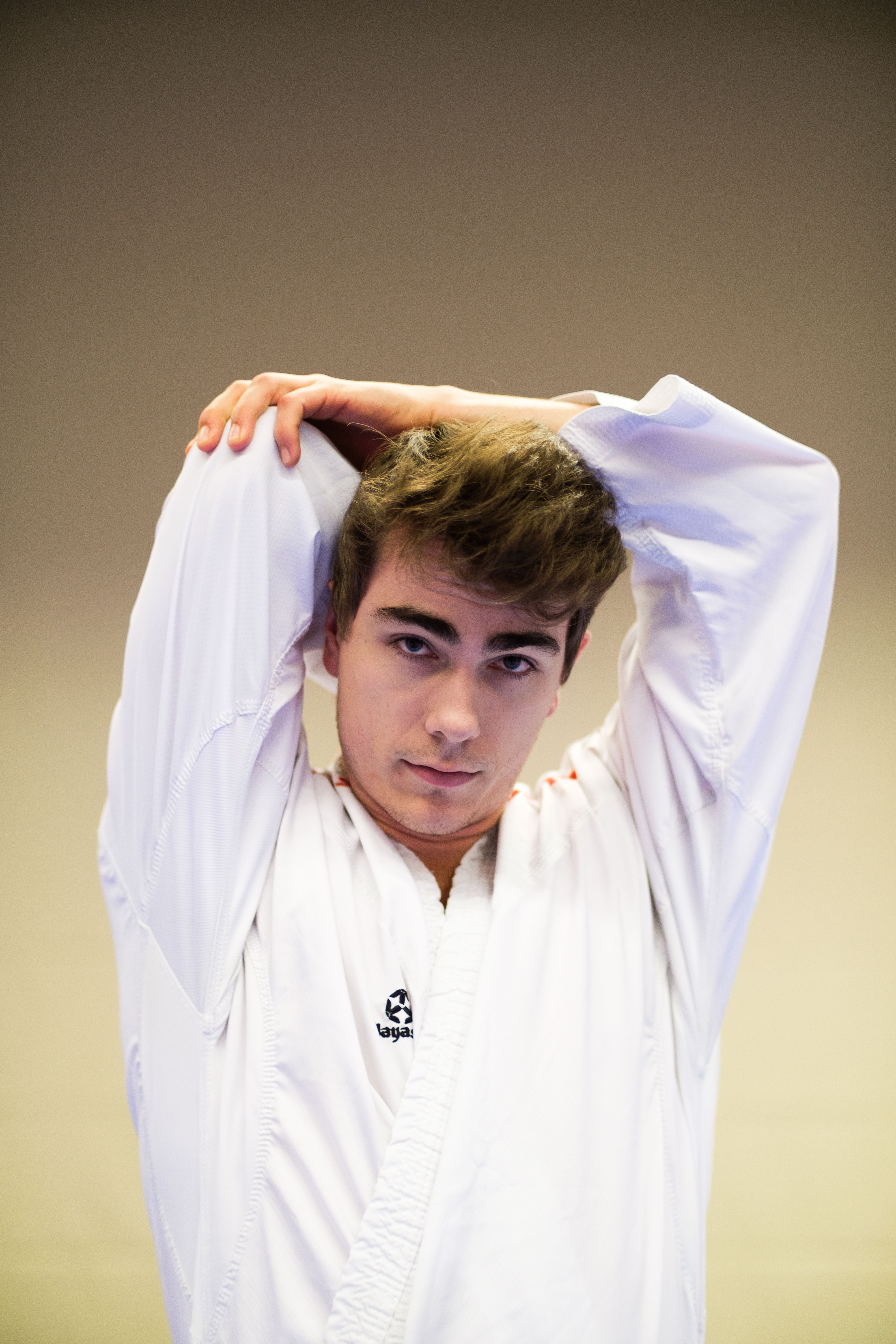
Brian Timmermans studied Econometrics and Financial Economics at Maastricht University and works as a statistician at Statistics Netherlands. A multi-time and reigning Dutch sport karate champion (–84 kg), he runs Karate Team Timmermans in Heerlen with his two brothers.
Also read
-
Maastricht University takes care of many distinctive buildings and art works that we all know. By giving them a new purpose, we preserve these icons and give them a new meaning, making them the vibrant heart of a bustling city.
Did you know that these buildings and art works also provide access to...
-
"I am proud that our new Circular Plastics group published its first completely in-house research," Kim Ragaert says. She founded the research group three years ago, when she moved to Maastricht. Her work has laid the foundations for many innovations in the field of plastic recycling, and she is...
-
Drawing blood, inserting an IV, or looking into the ear; even seemingly simple medical procedures can cause anxiety, pain, and stress in children. According to pediatric intensivist Piet Leroy, comfort and trust are just as important as the medical treatment itself. Therefore, he is researching how...

